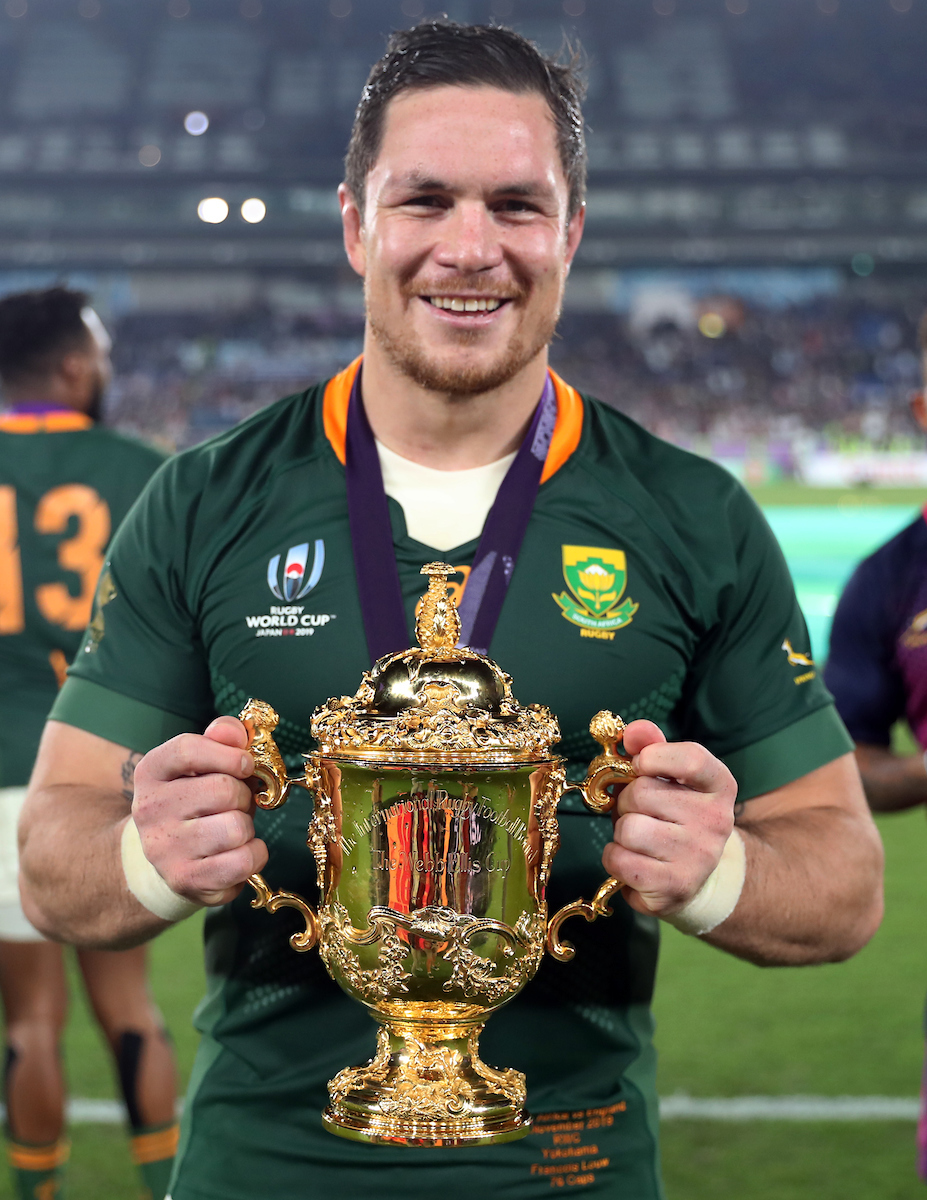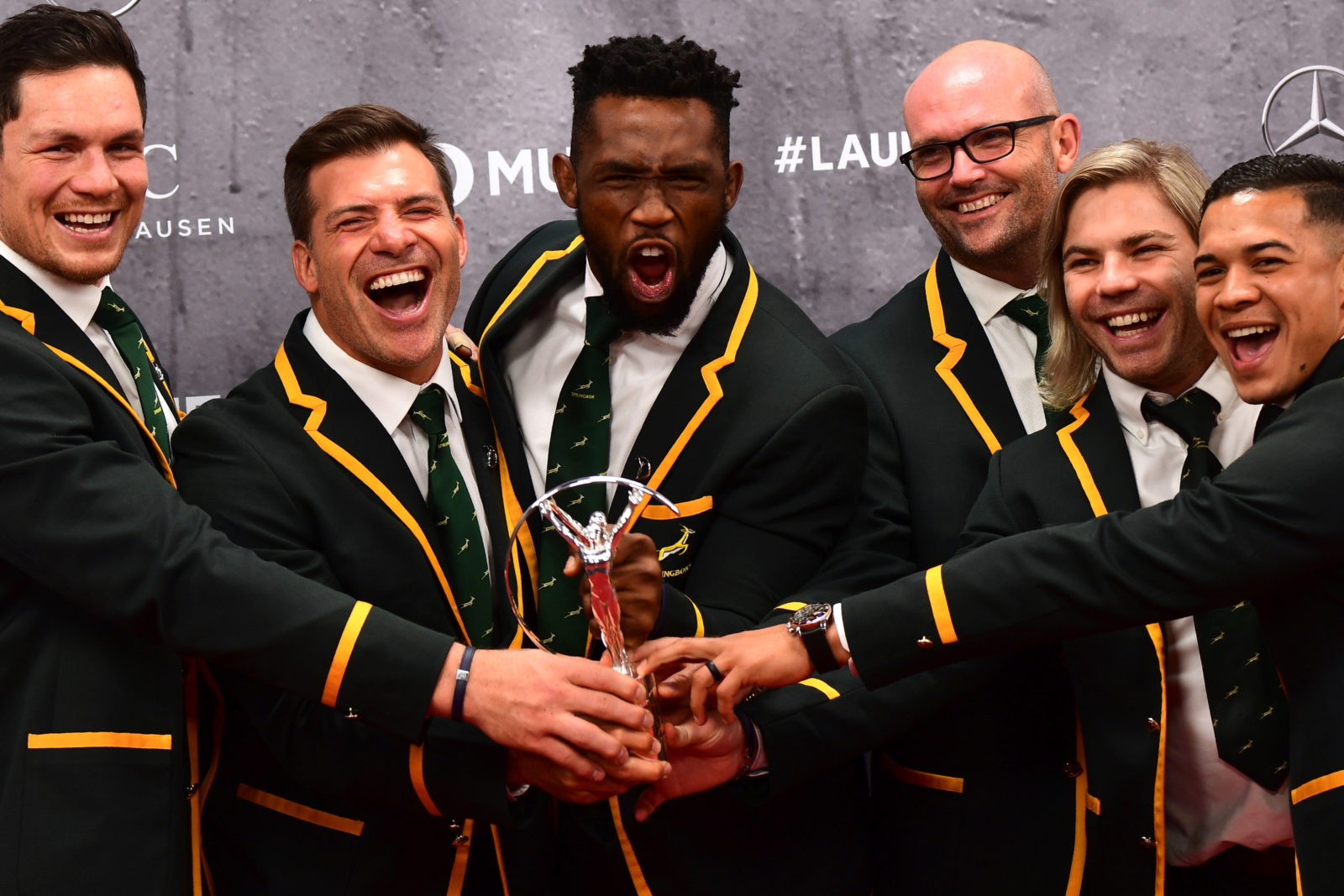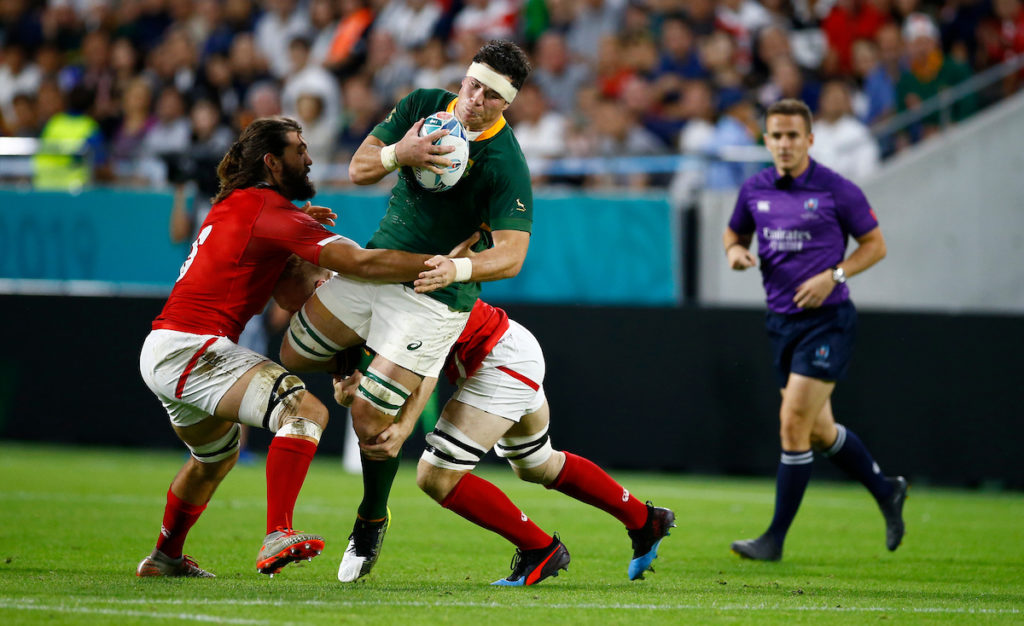World Cup-winner Francois Louw chats to JON CARDINELLI after confirming that he will retire from all rugby at the end of the European season.
JC: You announced your international retirement immediately after the Springboks won the World Cup final in Yokohama last November. Given how you played at that tournament, it’s fair to say that you could have played for Bath for at least another season. Why then have you decided to hang up your boots?
FL: I’ve been thinking about this for the past year or so. My mind is willing. My body, however, is telling me it’s time to move on. It’s hard in the sense that there are so many things I didn’t achieve. I didn’t win a Currie Cup trophy with Western Province or a Super Rugby final with the Stormers or a Premiership final with Bath. I did win the Rugby Championship and the World Cup with the Boks, though, and that has helped regarding this decision. I can walk away with a full heart.
JC: Why have you decided to announce your retirement at this stage of the season?
FL: To be clear, I am fully committed to finishing this season with Bath. I’ve had a lot of people asking me about my future, though, so I’ve decided to make a call and to be open about my decision. It’s something that my wife and I decided together. I’m 34, and I feel like I could have pushed myself to play a couple more seasons. On the other hand, I’ve got to be mindful about the punishment my body has taken over the years. I have the opportunity to go out on my own terms now. Not many players get that chance.
ALSO READ: Flo to assist young athletes with financial advice
JC: Let’s talk about what you put your body through in 2019. How did that season differ to those that came before?
FL: 2019 was the most hectic year of my career. The Boks spent 20 weeks together, from the first conditioning camp to the World Cup trophy tour. Rassie Erasmus’ regime was full-on – and rightly so, it certainly led to the desired results. I’d be lying if I said it wasn’t a challenge, though.
JC: In what way?
FL: That period before the World Cup was especially nerve-wracking. The race for loose-forward spots was wide open. So many quality players could have gone to Japan, but there were only a few places in the 31-man squad. You couldn’t hold back in the Rugby Championship matches, because you knew you were playing for your World Cup place. At the same time, you would whisper to yourself: ‘Please don’t get injured, please don’t get injured.’ I was very relieved when I eventually boarded the plane for Japan.

JC: You travelled to that World Cup knowing that you would have a different role to play – given that Bok captain Siya Kolisi also plays openside flank. How did you adjust to that?
FL: I’m a competitive guy. I want to start every game and I want to be the best. I spoke to Rassie, and he felt that I could play a different role at the World Cup covering 6, 7 and 8. That bench role, he said, would be important. You have two choices in that situation. You can buy into the plan, and do the best you can in that new role. The alternative is to complain about it. Myself and the other guys on the bench decided to embrace our new roles wholeheartedly, and that’s where the Bomb Squad concept gathered momentum and became something special.
JC: We saw the Boks producing a couple of magnificent 23-man performances in 2018. You’ve been involved in a few losses in New Zealand over the course of your 10-year Test career, so that victory against the All Blacks in Wellington must have been a career highlight?
FL: So much is made about starting a game, and even now, it’s something I want to do. However, having played off the bench a lot over the past year or so, I can vouch for the fact how hard the reserves work and how their contributions can close out or win a game. Bongi Mbonambi made a huge difference when he was introduced in the latter stages of that game against France in 2018. The big win in Wellington was another clear example of the bench’s impact. The starting guys were fantastic on that occasion, but we had a lot more to do as reserves when we came on in the second half. I made about 10 tackles in four minutes. I’ve never been so tired in my life. Another example is the 2019 World Cup semi-final against Wales. The reserves had to come on in the second half and get the job done.
RASSIE ERASMUS: Louw was a warrior
JC: You won a crucial breakdown penalty during the latter stages of that semi-final. From there, the Boks managed to exit their half and win another penalty from a lineout. Handre Pollard went on to kick the goal that sent South Africa into the World Cup final. Does that breakdown play stand out for you as one of the most important contributions of your career?
FL: [Laughs] I still get a bit uncomfortable when I rewatch that moment on TV. It was one of those situations where the referee could have blown in favour of either team. On the day I was the hero, but it could have gone the other way and I may have been remembered as the guy who gave away the decisive penalty in the semi-final.
JC: It was a big moment in the game, though, and the Boks needed someone to step up and make a play that changed the momentum of the contest. Was that what you were thinking when you attacked that particular breakdown? Was it a case of ‘I have to take a risk here to get the reward?’
FL: I’d say it was a calculated risk. Any openside will tell you that experience as well as instinct comes into play in that situation. Over the course of your career, you gain a good understanding about when you should attack the ball and when you should hang back. It gets to the point where your reaction is instinctive. Personally, I felt that all 23 players stood out in what was a tough game against Wales. Damian de Allende’s try was the big moment.
ALSO READ: Departing Louw relishes World Cup redemption
JC: Some people questioned Siya Kolisi’s right to a place in the starting lineup ahead of the World Cup final. You came out at a media conference in the buildup and spoke about his value as a leader, and the attributes that set him apart from others.
FL: Siya and I have come a long way. I left the Stormers a year or two after he arrived in Cape Town. When I went, I made the statement that Siya Kolisi is the future of South African rugby. We had a good relationship when we worked together at the Boks in the intervening years. He was always looking to learn and I’ve always felt that the senior guys have a duty to share their knowledge. When he was appointed as Springbok captain in 2018, he approached all of the senior players and put his cards on the table. He was honest about what he could and couldn’t do, and he was willing to ask for help. That’s what makes him such a fantastic leader. He made it clear that he wouldn’t be leading the team on his own.

JC: You were on the stage with Kolisi and several other members of the squad when they Boks won the Team of the Year accolade at the Laureus Awards in Berlin. Where does that moment rank in your career?
FL: We achieved a great deal in terms of results last season. What was truly special, however, was how we came together as a diverse group and united to pursue a common goal. I look back at the times when some people – and there are always going to be people like that – tried to tear us apart during our campaign. We saw all the videos and clips circulating at the World Cup about supposed disharmony in the team. It was nonsense. Perhaps it said a lot for our strength as a group that we were able to come through that ordeal, and that we went on to win the World Cup after that. That award meant a great deal in terms of what we achieved in spite of all the challenges.
Photos: Getty Images/Steve Haag Sports/Hollywoodbets






